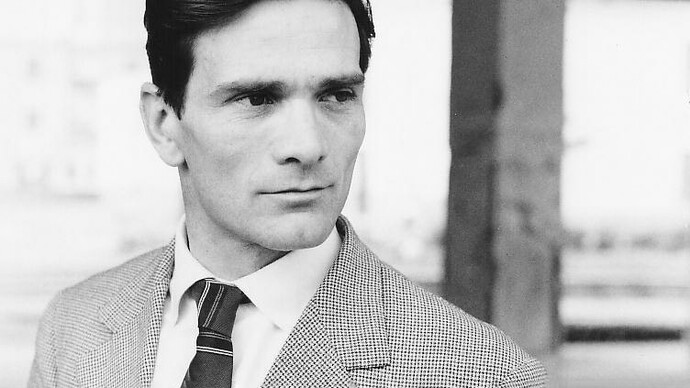
It is 100 years since the birth of Pier Paolo Pasolini, born in Bologna on March 5, 1922 and one of the most outstanding filmmakers and writers of the twentieth century.
It is a good opportunity to reflect on his particular perception of Christianity and the Church.. He described himself as an atheist and Marxist, although he was the author of The Gospel according to St. Matthew, whose main quality is to transfer to the screen the best of film scripts: a Gospel without gloss. Years later, Pasolini encountered two Christian Pablos: Paul, the apostle, and Paul VIthe Pope.
The Italian director wanted to make a film about the life of St. Paul.but did not find favor in either religious or secular circles. In reality, he sought to make a curious trilogy of films on Paul of Tarsus, Charles de Foucauld and Antonio Gramsci, with a no doubt polemical approach.
None of these projects came to fruition, although St. Paul's script was published. It was not a period film, but a transposition of the apostle's life to certain scenes and places of the 20th century, combining documentary scenes with texts that appeared in fades to black, taken from the Acts of the Apostles and the letters. Barcelona, Paris, Munich, Rome and New York were the cities in which Paul's life took place in the 20th century.
Pier Paolo Pasolini (Bologna, March 5, 1922 - Lazio November 2, 1975) Italian writer, poet and film director.
The rigorist Phariseefounder of an institutionalized Church, and the saintwho does not hide his weaknesses and writes the best of hymns to charity.
The second Paul is the one who arouses the sympathy of the director, because he imagines that the Pharisee would have much to do with the early death of his mother and the authoritarian education of a distant father, both physically and spiritually. It is that father who sends him to Jerusalem to receive a Pharisaic education.
But Pasolini's favorite Paul is that he speaks of "scandal for the Jews and foolishness for the Gentiles".. He identifies himself with the Paul of the letters, not with the Paul of the Acts.
In addition, the film, like others by the director, would be a requisition against bourgeois civilization.He is a man who has erased the feeling of the sacred from the center of human life. He lashes out against "Jews and Gentiles," the double expression of contemporary conformism, in the hypocritical and conventionally religious aspect, and in the secular, liberal and materialistic one. We even see a Paul overwhelmed by weariness and discouragement, whose preaching is rejected in skeptical and liberal Rome, the Athens of the 20th century, or fails to find an echo in the midst of the crowds and traffic of New York, a city that symbolizes alienation and loneliness. Finally, it is in the United States that Paul suffers martyrdom, victim of a sniper in a motel window, a clear reference to the assassination of Luther King. This death takes place amidst the indifference of those who pass by.
One interpretation of the film is that Pasolini to denounce a world devoid of charityThe director affirmed that ideologies and a bureaucratized conception of religion are alien to it. The director affirmed that ideologies and a bureaucratized conception of religion are alien to it. He stressed that all established power insists too much on faith and hope, never on charity. The difficulty of translating this into images made him modify the script on several occasions. But Not even an actor like Orson Welles, designed to play St. Paul, would have been able to faithfully convey the contradictions that the director thought he saw in the apostle.
in a general audience that began by referring to the difficulties of the Church in a changing world, in which Christianity would not have the right to exist, since it was easier to assume a rationalist and scientific conception without dogmas and hierarchies. It was not a pessimistic discourse, for the Pope assured that a living and authentic faith was the first condition for overcoming this difficulty. Pasolini had confessed to a journalist that he was aware of the suffering experienced by Paul VI in the post-conciliar period, a suffering accentuated by his condition as a reflective intellectual, not given to external manifestations, but no less sincere for that. He responded to the speech with an article in which he said that the Church should go into opposition and confront the bourgeois power that sought to exclude her after having instrumentalized her for more than a century, and added that every true religion should oppose that power.
It is very likely that Paul VI read his article, for on November 2, 1975, when television carried the news of Pasolini's murder on a beach in Ostia at the hands of a 17-year-old boy, the Pope disavowed a disparaging remark by one of his collaborators. He got up, stood in front of the screen to make the sign of the cross and then added: "Requiem aeternam dona dei Domine. And now let us all pray for this poor soul".
With the collaboration of:
Antonio R. Rubio Plo
Graduate in History and Law. Writer and international analyst.
@blogculturayfe / @arubioplo